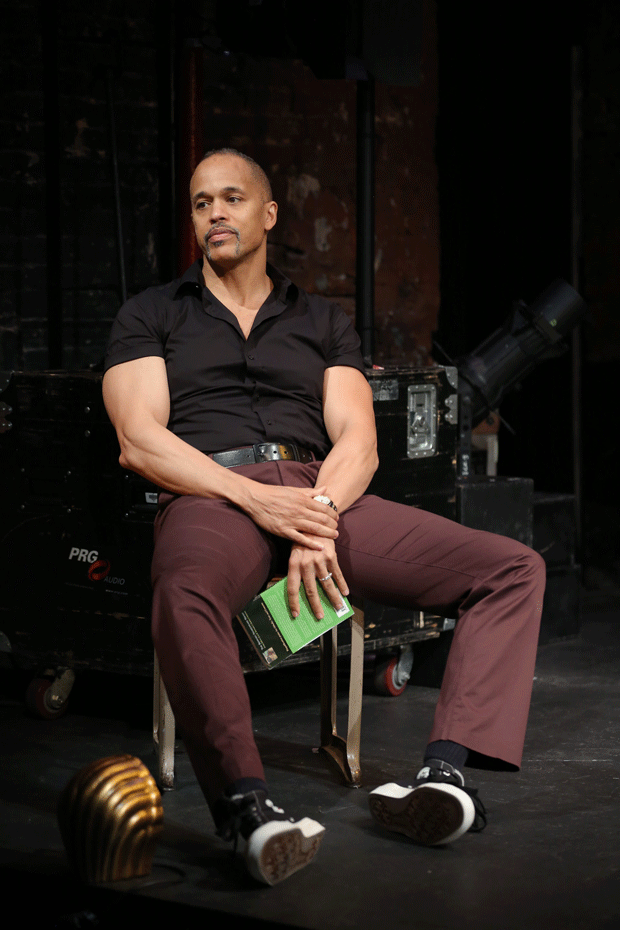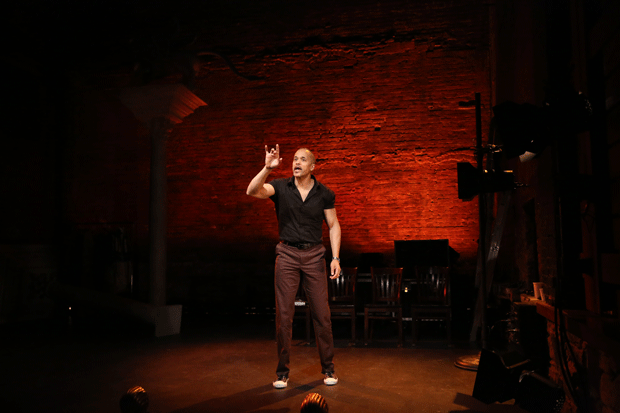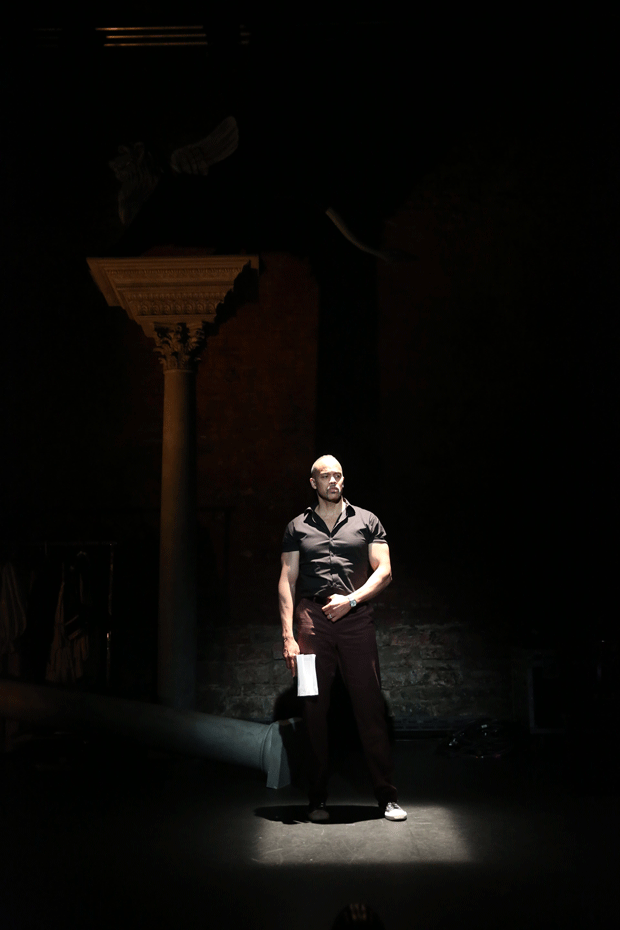Seeing Othello Through a Black Actor's Eyes in American Moor
Keith Hamilton Cobb’s play about theater and race in America has its New York premiere at the Cherry Lane Theatre.

(© Carol Rosegg)
"In so much mainstream American theater, when there are black people onstage, the director has usually been a white man," said director Timothy Douglas in a recent interview I had with him. "You're not actually seeing authentic black life; you're seeing it filtered through the white lens."
Those sentences ran through my head as I watched American Moor, a gripping two-hander now making its New York premiere in a Red Bull Theater production at the Cherry Lane Theatre. Written by and starring Keith Hamilton Cobb, who gives one of the best performances you'll see this season, the play is ostensibly about a black actor auditioning for Othello and trying to get a white director to understand his take on the title role.
But American Moor, which has been in development since 2013, gradually evolves into a searing, at times furious indictment of America and its persistent reluctance to listen to people of color and acknowledge their experiences in this country. If you go to see American Moor — and you should — leave any white fragility you may have at home.

(© Carol Rosegg)
The play takes place in a theater where a black actor named Keith (Cobb) paces restlessly and checks his watch as he waits for a director (Josh Tyson) to audition him for the lead role in Othello. The stage, littered with props and chairs, has an intimidating feel to it, especially with a large griffin, symbol of strength and courage, sitting high on a pedestal and dwarfing the actor below (Wilson Chin designed the evocative set).
Though he's not easily intimidated, Keith knows that to get this gig, he's going to have to play a game and keep his cool despite the comments he's bound to hear from this well-educated suit. "Man! You're tall!" says the smugly confident white director, seated among us in the audience, as he addresses Keith with presumptuous familiarity before they launch into a discussion of the passage in which Othello must convince Desdemona's father that he hasn't used witchcraft to win his daughter.
Cobb wants to give Othello a quiet strength and dignity as the Moor performs, as he describes it, a "belittling minstrel show" in front of the Venetian senators. The director doesn't see things that way: Othello should be ingratiating, show obeisance to the Senate — in effect, play a black man whose dignity is a facade that will, naturally, give way to monstrous, irrational jealousy.

(© Carol Rosegg)
Most of the play's action, however, takes place in Keith's mind, where we hear and see his reactions to the director as well as learn of his experiences as a black actor and black man. Lighting designer Alan C. Edwards bathes the stage in a warm glow when we're listening to the real things he'd like to say to the director. "I seem a little angry to you?" he asks, aiming the mental question at the director, but also at us. "You think any American Black man is gonna play Othello without being in touch with his anger… at you?" A quick change to a cool, white light brings us back to the theater as Keith reapplies his mask for the director: "I'm sorry. May I just… If you would please indulge me, I would just like to start this again."
How long can he keep up this charade? For quite a while, it turns out; as a black man in America, Keith has grown accustomed to this sort of thing (the parallel with Othello justifying himself to the senators here becomes clear). Director Kim Weild keeps the tension growing over the course of 90 minutes as we feel Keith's frustration build and his words pound like angry waves that crash and then ebb quietly.
It's an effective setup for the moment when Keith can no longer hold his peace and he makes a last-ditch plea for the director to listen, really listen. Despite the racist indignities he has endured over the course of this audition and throughout his life, Keith (and Cobb) offers the director (and us) a moment of grace: "Tell me what you hate… what you fear. Trust me. I will protect you. I will not let anything hurt you. Talk with me. We have so much to talk about." It is one of the most moving scenes I've witnessed onstage in years.
There is a tenuous sense of hope at the end of American Moor that raises questions about how blacks and whites communicate with one another in this country. Is it possible for white people to understand what it's like to be a person of color in America? The answer is no. But is it possible to at least try to understand? Sure — if you stop talking and listen.








